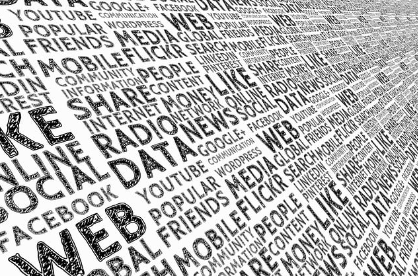Abstract
Introduction: This study addresses teaching in education, reporting an experience within the Master's in Teaching Humanities and Languages (MEHL) program at the Franciscan University (UFN). Objective: The research focused on the Microcontent Production discipline in the Advertising and Propaganda course, emphasizing the teaching of memes based on Media Education. Methodology: The qualitative study takes the form of a reflective report, theoretically grounded in works by authors such as Veiga (2014), Lima and Grilo (2008), Morin (2000), among others. The undergraduate activity was guided by the "Reading, Writing, and Participation" tripod of Media Education (Ferrari, Machado, and Ochs, 2020), exploring meme teaching over four meetings. Results: Highlight the efficacy of memes as a pedagogical resource, fostering a more relaxed and horizontal communication between educators and students, aligning with contemporary teaching paradigms. Conclusion: This study provides valuable insights into the successful integration of memes as a pedagogical tool, highlighting their effectiveness in promoting engaging communication aligned with contemporary educational principles. These findings have significant implications for teaching practices in higher education, suggesting more innovative and student-centered approaches.
References
ASSESSORIA DE COMUNICAÇÃO DA UNIVERSIDADE FRANCISCANA – ASSECOM UFN. Saiba quais são as novas Disciplinas Eletivas para o 1º semestre de 2023. 2022. Disponível em https://www.ufn.edu.br/site/detalhes-noticia/saiba-quais-sao-as-novas-disciplinas-eletivas-para-o-1-semestre-de-2023. Acesso em 20/06/2023.
BARRETO, C. H. da C. Cultura de Memeficação na Internet: um estudo com o site Museu de Memes sobre a influência da pandemia na comunicação. Monografia (Trabalho Final de Graduação) – Curso de Publicidade e Propaganda, Universidade Franciscana (UFN). Santa Maria, Rio Grande do Sul, 2021.
CASTELLS, M. A Galáxia da Internet: reflexões sobre a internet, os negócios e a sociedade. Rio de Janeiro: Zahar, 2003.
CHAGAS, V. (Ed.). A cultura dos memes: aspectos sociológicos e dimensões políticas de um fenômeno do mundo digital. Salvador: SciELO-EDUFBA, 2020.
CHAGAS, V. Entre criadores e criaturas: uma investigação sobre a relação dos memes de internet com o direito autoral. Fronteiras-estudos midiáticos, v. 20, n. 3, p. 366-377, 2018.
CHAGAS, V. Pesquisa com memes: serious business. Museu de Memes, 2022. Disponível em: http://www.museudememes.com.br/pesquisa-com-memes-serious-business/. Acesso em 20/06/2023.
FERRARI, A. C.; MACHADO, D.; OCHS, M. Guia da Educação Midiática. São Paulo: Instituto Palavra Aberta, 2020.
GIL, A. C. et al. Como elaborar projetos de pesquisa. São Paulo: Atlas, 2002.
JENKINS, H. Cultura da convergência. Aleph, 2015.
LEENE, A. Microcontent is everywhere (on microlearning). In: HUG, T., LINDNER, M., BRUCK, P. A.(Ed.). Micromedia & e-learning 2.0: gaining the big picture: proceedings of Microlearning Conference 2006. Innsbruck, Austria: Innsbruck University Press, 2t006b. p. 20-40.
LÉVY, P. Cibercultura. Editora 34, 1999.
LIMA, V. do R. M.; GRILLO, M. C. O fazer pedagógico e as concepções de conhecimento. In: FREITAS, Ana Lúcia Souza de; GESSINGER, Rosana Maria. A gestão da aula universitária na PUCRS. Organizadoras: Gillo, Marlene Correro; Lima, Valderez Marina do Rosário. Porto Alegre: EDIPUCRS, 2008. 170 p.
MASETTO, M. T. Inovação curricular no ensino superior. Revista e-curriculum, v. 7, n. 2, 2011.
MICHEL, M. H. Metodologia e pesquisa científica em Ciências Sociais. São Paulo: Editora Atlas, 2. Ed., 2009.
MORIN, E. Os sete saberes necessários à educação do futuro. 2. ed. São Paulo: Cortez; Brasília, DF: UNESCO, 2000.
MUSSI, Ricardo Franklin de Freitas; FLORES, Fábio Fernandes; ALMEIDA, Claudio Bispo de. Pressupostos para a elaboração de relato de experiência como conhecimento científico. Revista práxis educacional, v. 17, n. 48, p. 60-77, 2021.
RECUERO, R. Redes sociais na internet. Porto Alegre: Editora Sulina, 2009.
VEIGA, I. P. A. Aula: gênese, dimensões, princípios e práticas. Papirus Editora, 2014.

This work is licensed under a Creative Commons Attribution 4.0 International License.
Copyright (c) 2023 Carlos Henrique da Costa Barreto, Eliane Aparecida Galvão dos Santos, Taís Steffenello Ghisleni


